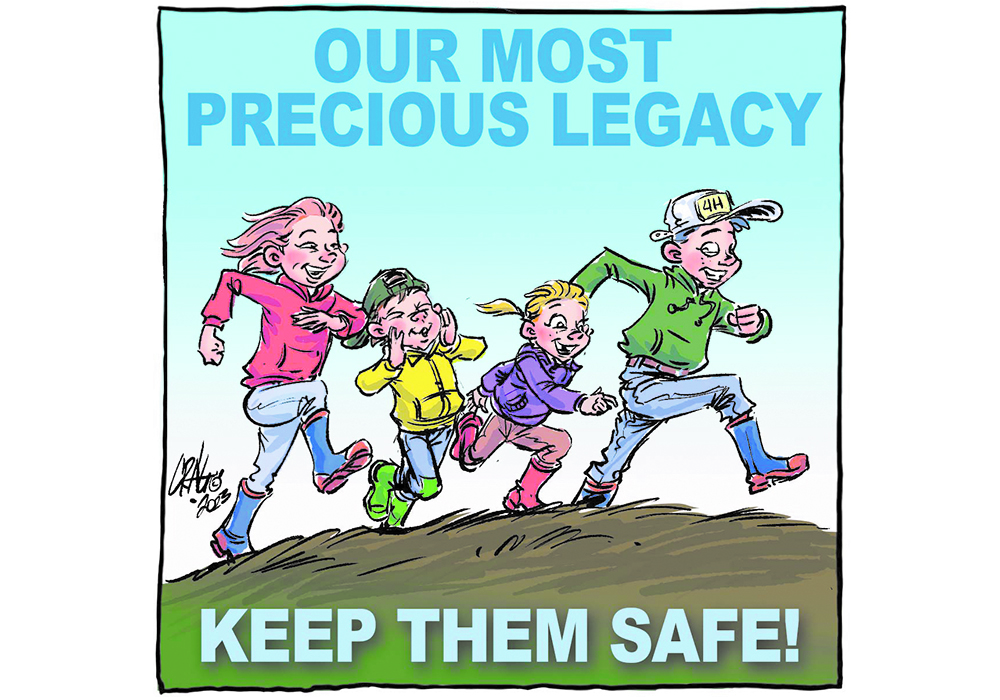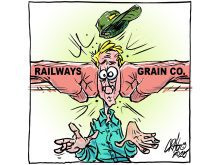There are ever-fewer kids on Canadian farms, in part because there are ever-fewer Canadian farms. But appallingly, the rate of fatalities among farm kids has remained constant over the past three decades.
Agriculture is a unique industry, with its social side blended indistinguishably with its business operations. But farms are dangerous places comprising largely unregulated work spaces. Despite all efforts, the rate of fatal injuries among children remains at four per 100,000. Totals have fallen by approximately half, but so has the farm population.
There are slightly fewer than 150,000 children living on farms in Canada. In 1990 there were almost 400,000. Since then, 374 children have been killed.
Read Also

Farmer ownership cannot be seen as a guarantee for success
It’s a powerful movement when people band together to form co-ops and credit unions, but member ownership is no guarantee of success.
In about 70 percent of those tragedies, farm work was involved and in about two-thirds of the cases, the child was working. Two-thirds of all farm kids’ deaths involved farm equipment. Boys are four times more likely to die than girls and almost half of the kids killed hadn’t yet started primary school.
In the United States, a child dies from an agricultural incident every three days, on average, and more than 30 are seriously injured every day. The U.S. has about 10 times as many farmers and a slightly higher farm population as a percentage. Like Canada, its farm-child fatality numbers haven’t changed much over time.
There are benefits to growing up on a farm and entering roles with meaningful work at an early age. There are undeniable advantages in developing occupational skills, learning responsibility and understanding the ethics of animal agriculture. These are part of farm culture.
Farm life also offers close ties to the outdoors and environment and all the beauties and benefits those relationships can offer.
Yet safety must be paramount. Life is precious.
And, to be jarringly practical, new generations of farmers are key to the sustainability of our food supply and our international trade. The next generations typically follow their parents and grandparents into the business. If children don’t learn to live on the farm from an early age, it will be harder than ever to develop future farmers.
Farming is a way of life, and farming is dangerous. As adults we accept this more readily than we should — and certainly more readily that our children should.
Those who live and work on farms must consider what can and should be done to protect children while still engaging them in farming and rural life.
There are few health and safety and work regulations when it comes to sole proprietors who involve their own families in farm operations. Governments and those who elect them have chosen to keep out of farmers’ business, largely eschewing legislation and its enforcement.
Safety education has been the go-to solution, but that has been in place for decades with no perceivable effect on reducing child deaths on farms.
Now the courts are starting to enforce applicable laws surrounding deaths on the farm. An Ontario farmer was convicted of criminal negligence causing the death of his four-year-old son.
If agriculture is to avoid public condemnation and legislation surrounding safety, it must find paths to reduce these injuries and deaths.
Editor’s Note: We would like your feedback on this subject. Are there practical solutions? Do the benefits of farm life outweigh the risks? Email us at newsroom@producer.com and place “farm safety” in the subject line. We want to hear from you.
Karen Briere, Bruce Dyck, Barb Glen and Mike Raine collaborate in the writing of Western Producer editorials.















